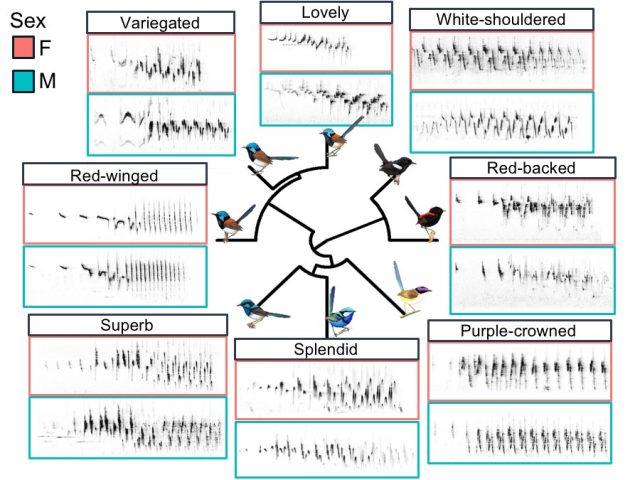A simple song can say a lot: Geographic differences in the Chipping Sparrow’s song are discovered using citizen-science recordings
Many avian species in North America differ in physical appearance, leading researchers to split them into separate subspecies, often based on geography. Just how subspecies form is a question many researchers are trying to answer: How do these physical and plumage differences arise? Do subspecies have behavioral differences, too, such as different songs? How do…











